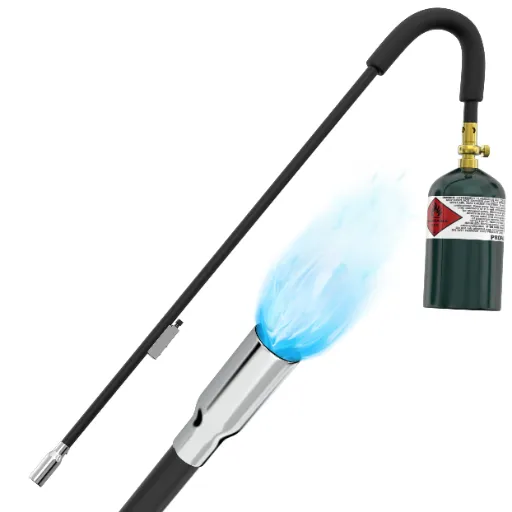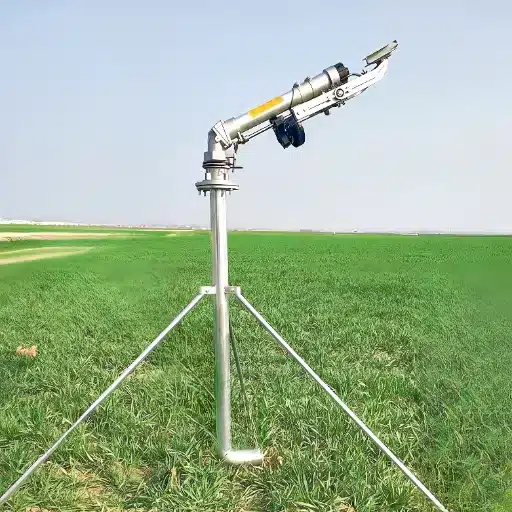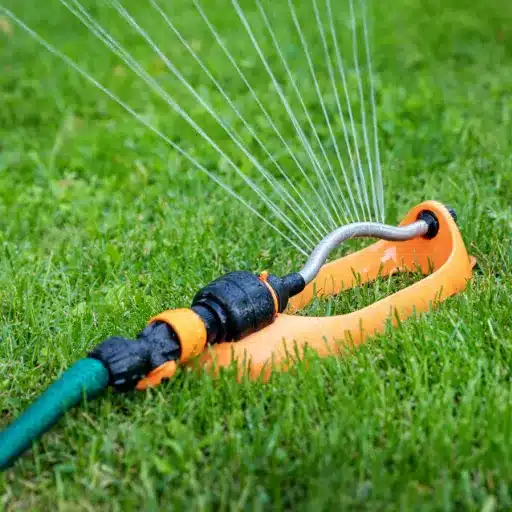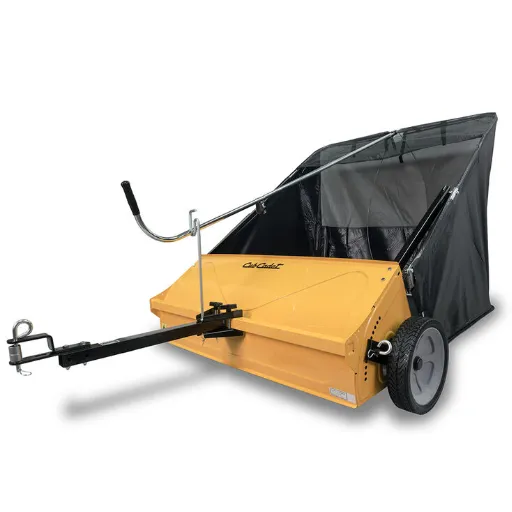Do you want to give your business operations that boost while affording customers their convenience? Then, a Coinstar might be your one-stop answer. It converts coins into cash quickly and efficiently, making it an invaluable asset to any business. Grocery stores, retail shops, and banks can all offer this service to differentiate themselves from others. With higher foot traffic, customer satisfaction is sure to remain high. As we begin this blog on how a Coinstar can be a boon to your firm, we will discuss what to look out for in a Coinstar and why the current period may be ideal for this game-changing addition. Stay along for these tips on how to merchandise some loose change into redeemable value—at least for your customers and your trade.
Understanding Coinstar Machines

These Coinstar machines are unattended kiosks where individuals can turn their small change into cash, eGift cards, or make charitable donations. They are relatively easy to use; customers simply pour in their coins, check the final count, and then select their preferred method of payout. Coinstar charges a nominal fee for cashing out coins, but other options, such as eGift cards and donations, are typically fee-free. Plentiful in grocery stores and retail outlets, these machines offer a convenient service while also attracting customers seeking a quick and easy way to cash in on their spare change.
What is a Coinstar Machine?
This is a Coinstar machine, a self-service kiosk where you can convert loose change into cash, eGift cards, or make donations, often for a small fee. These are installed in retail and grocery stores to facilitate quick and convenient transactions.
Some of the less traditional uses for the Coinstar machine include the occasional act of bamboozling and taking advantage of the gullible.
How Coinstar Machines Work
Using a handful of coins may or may not be a standard procedure with Coinstar’s coin-counting machines. The machines start by users dumping the unsorted coins onto their trays. The coins are then run through an interior sensor and sorter system that identifies each coin according to its size, weight, and electromagnetic properties; foreign or damaged coins are separated and returned to the customer.
When all coins are counted, the amount is displayed, and the user is given several options, typically including redemption of a cashless processing fee and exchange for an eGift card (not always).
Process or donation to a participating charity. The processing fee typically stands at 11.9 percent in the United States but may vary quarterly or by location.
To ensure high uptime and reliability, Coinstar machines are regularly serviced and updated. Recently, Coinstar has revealed that over 22,000 machines live around the world in more than a dozen countries, processing billions of coins every year. This infrastructure highlights the importance of Coinstar machines in simplifying the process for both individuals and businesses to handle actual cash.
Benefits of Using Coinstar Machines
|
Key Point |
Description |
|---|---|
|
Convenience |
Quickly converts coins to cash or eGift cards |
|
Charity Donations |
Donate coins directly to partnered charities |
|
No Sorting Required |
Automatically counts and sorts coins |
|
Multiple Redemption Options |
Choose cash, eGift cards, or donations |
|
Wide Availability |
Over 20,000 kiosks worldwide |
|
Fee-Free eGift Cards |
No fees for eGift card transactions |
|
Environmental Impact |
Recycles coins, reducing minting needs |
|
User-Friendly Interface |
Intuitive and straightforward to use |
|
Supports Trusted Charities |
Partners with reputable nonprofit organizations |
|
Time-Saving |
Processes up to 600 coins per minute |
Coin Counting Technology

Highly sophisticated sensors and software are used in Coinstar machines for accurate coin counting and sorting. The sensors can identify the type of coin based on its denomination. It also rejects any foreign or damaged coins. It is a fast technology, giving users the total coin value within seconds. Accuracy and convenience back this option for converting loose change.
Accuracy of Coin Counting Machines
With the advancement of technology, new coin-counting machines, including those manufactured by Coinstar, have attained incredible precision. These machines use optical sensors, magnetic detection, and precise calibration to identify and sort coins into their denominations. According to recent data, most commercial coin-counting machines have an accuracy percentage above 99%, ensuring fewer errors in counting and sorting. Rejecting counterfeit, foreign, and damaged coins on the go is one of its features that provides greater reliability in the defense sector.
For instance, some recent upgrades that have made headlines involve algorithms that can count and sort 600 coins per minute without compromising accuracy. Moreover, user testimonials indicate that these machines provide consistency and speed, working effectively for both businesses and personal users in sorting large quantities of coins. This is one of the many technological breakthroughs aimed at providing the final user with a coin management system that is fast, precise, and easy to use.
Types of Coin Sorters and Their Features
|
Type |
Key Features |
|---|---|
|
Manual Counters |
Hand-crank, low cost, small volume |
|
Electric Counters |
Motorized, faster than manual, medium volume |
|
Automatic Counters |
Fully automated, detects counterfeits |
|
Coin Sorters |
Sorts coins by denomination |
|
Coin Wrappers |
Wraps coins into rolls |
|
Counting Kiosks |
Self-service, fee-based, retail use |
|
High-Speed Machines |
Processes thousands of coins per minute |
How to Choose the Right Coin Counting Machine
Choosing the right coin-counting machine involves several factors tailored to the specific operational requirements at hand. Consider these five factors before making your choice:
- Counting Speed
Select a coin-counting machine based on the desired counting speed. High-speed machines operate at a rate of 200 to 600 coins per minute. The larger an operation collects coins in bulk every day, the more need for speed; the smaller ones are more concerned about cost.
- Sorting Facility
Some coin-counting machines perform sorting of coins by denomination, while others count just the total amount. If sorting is something you want to prioritize in your operation, consider coin sorters that come with all the necessary features. Multi-denomination sorting machines are particularly valuable in retail settings where handling currencies of different denominations must be organized.
- Capacity and Hopper Size
Hopper size refers to the capacity of a coin load that the machine can hold and process simultaneously. Machines with large hoppers are suitable for businesses that frequently encounter bulk coin deposits, thereby minimizing the need for frequent refills or interruptions.
- Check For Accuracy and Error Detection
Accuracy is a crucial topic in coin counting, particularly in commercial settings. Try the machine for advanced error detection features, such as counterfeit coin detection or foreign object detection, so that you are not left staring at a significant discrepancy in counting.
- Ease of Use and Maintenance
Select those that have a user-friendly interface and clear display settings. Maintenance is another factor: machines with removable parts and easy cleaning options ensure that they remain functional for a long duration.
Taking all these into consideration, you will be able to purchase a coin-counting machine that fits your operational requirements.
Coinstar for Retail Businesses

Coinstar machines are a significant draw for foot traffic, offering shoppers convenience in retail stores. Through these machines, customers may exchange unwanted loose change for cash, eGift cards, or donations to charity. Since providing such a service generates a reason outside the usual purchase to visit these stores, customer visits might increase, thereby leading to higher sales. Coinstar installs and maintains the machinery, and also handles all associated cash management. Therefore, for any retailer looking to adopt Coinstar, it’s a reasonably straightforward value addition.
Implementing Coinstar in Your Business
The integration of Coinstar into a business can be a relatively simple process with tangible benefits. Coinstar kiosks are designed to blend seamlessly into retail spaces, occupying a minimal amount of floor space and requiring minimal operational input. Coinstar’s recent reports indicate that average kiosks process thousands of dollars worth in coins every month, thus maintaining steady rates of foot traffic. It has been shown that having a Coinstar kiosk on-site tends to drive in-store purchases, as 60 percent of users go into the hosting store and use at least a portion of their redeemed cash there.
Coinstar machine setup and maintenance are handled entirely by the company, relieving businesses of any operational burden. Moreover, Coinstar kiosks cater to a wide variety of needs: customers can take their money as cash, choose from eGift card options, or even donate that amount to a charity. Coinstar data reveals that charitable donations through its kiosks have now exceeded $140 million, underscoring the tremendous appeal for businesses committed to giving back to the community.
By forming a partnership with Coinstar, companies will attract a more diverse customer base and potentially enhance their brand value by offering a convenient service. This option is attractive to retailers seeking to improve their customer experience and revenue potential due to its ease of implementation and minimal upfront costs.
Customer Satisfaction and Convenience
Services like Coinstar have become essential for busy individuals who value convenience. With so few minutes to spare, one could lose patience while sorting out piles of loose change and trying to convert that into cash or a gift card. A very thoughtful way to handle all the spare coins– that certainly makes my shopping experience better and is a hit in my book with the companies that provide the service.
Self-Service Kiosk Advantages
By providing self-service kiosks, they enable customers to improve their own satisfaction. These are the five main advantages:
- Faster Service
This minimizes the wait time as customers can complete transactions swiftly and work independently from the stores. Research shows that with automatic kiosks, transaction time can be reduced by nearly 40% compared to traditional checkout lines.
- Cost Savings
Using kiosks helps reduce labor costs, as fewer employees are required to perform routine tasks. A firm can focus resources on other relevant operational roles, enhancing overall efficiency.
- Improved Accuracy
In doing so, people make fewer errors when entering data than would humans through self-service kiosks. For example, studies show that the use of kiosks drastically improves order accuracy in quick-service restaurants.
- Always-On
In an ideal world, a kiosk is always ready to serve, 24/7, whenever a need arises outside of usual business hours, allowing customers to access services according to their schedule. This increases satisfaction and comfort.
- Provide Prospects for Personalization
These types of systems can significantly enhance the customer’s experience by gathering data and providing recommendations or promotions. Suppose it can suggest a product to a customer based on a kiosk purchase history, thus building sales and loyalty for the enterprise.
Purchasing a Coinstar Machine

Coinstar machines are not sold individually, as the company leases them directly to businesses. To obtain a Coinstar machine, you must enter into a partnership with the company by completing the application process, which is available on the Coinstar website. Such partnership opportunities typically exist for high-traffic locations, such as grocery stores or retail stores. Please visit the Coinstar website or contact their customer service for more information.
Where to Find Coinstar Machines for Sale
Currently, Coinstar machines are not available for sale to individuals. Instead, they are leased directly to businesses through a partnership with Coinstar. If you wish to acquire a machine from them, I recommend contacting Coinstar through their official website to obtain further details about their process and requirements.
Considerations Before Buying
Before acquiring a Coinstar machine for your business, carefully consider these factors. Here are five essential considerations:
- Initial Costs and Leasing Terms
Coinstar machines are not available outright and can have leasing costs and conditions depending on the arrangement with Coinstar. The initial setup fee must be considered, as well as the monthly lease amount and any other associated costs.
- Profit Margins and Fees
Typically, Coinstar machines charge a percentage of each transaction as a fee, which can impact your profits. You need to understand how the fees are structured about your business goals.
- Foot Traffic and Location Suitability
This is a very critical aspect: the placement and success of a Coinstar machine go hand in hand. High-traffic locations, such as grocery stores or malls, will draw more users compared to less frequented areas. Consider whether your business location will give it sufficient exposure.
- Maintenance and Support Requirements
Maintenance of Coinstar machines includes regular upkeep to keep the machines operating properly. The Contract usually provides technical support, but it checks to ensure what services are covered and how responsive they will be.
- Target Demographic and Demand
Do coin-counting services attract demand in your region? Again, your client research and demographic analysis will determine whether Coinstar is a worthwhile investment for the business.
Taking a close look at these factors will ensure you make a sound investment in an area that directly benefits your business financially and operationally.
Cost Analysis of Coinstar Machines
|
Key Point |
Description |
|---|---|
|
Standard Fee |
12.9% of total coins |
|
Transaction Fee |
Additional $0.99 per transaction |
|
Fee-Free Options |
eGift cards or charity donations |
|
Gift Card Value |
Full coin value, no fees |
|
Charity Fee |
10% for national, 7.5% for regional charities |
|
Cash Conversion Example |
$100 coins → $86.11 after fees |
|
Fee Variation |
Fees may differ by location |
|
Convenience Factor |
Saves time compared to manual counting |
Managing a Coinstar Machine

Coinstar machines require periodic maintenance, monitoring, and collection. Seasonally clean a machine, including cleaning with approved cleaning solutions, to not only give customers a pleasant experience but also prevent the jamming of coins inside the payment system. Monitor the machine’s usage data to ensure it is performing well and identify peak hours of operation. The coin storage must be emptied at regular intervals. Otherwise, capacity problems will arise, and the service may be interrupted. From time to time, also install software updates and resolve any technical issues as soon as possible, following the manufacturer’s instructions. With these actions taken, the machine will perform nicely and reliably.
Maintenance and Care for Long-Term Use
For the machine to perform its job efficiently over an extended period, it needs to undergo regular maintenance and follow a prescribed care routine. In this regard, five main acts can help the machine be correctly maintained and cared for:
Schedule Regular Cleaning
Dust, dirt, and debris may accumulate over time, affecting performance significantly. Clean any accessible surface of the machine every week using the right tools and cleaning agents.
Inspect and Replace Worn Components
Wear and tear on mechanical or electronic components should be periodically checked. Any damage discovered should be addressed immediately to prevent further damage or malfunctions.
Monitor Usage Metrics
Analyze track data to identify specific trends, such as those occurring during peak operation times or signs of inefficiencies that may arise in the future. This data would aid in more effective maintenance planning to anticipate problems before they occur.
Lubricate Moving Parts
Lubricate all moving parts to minimize friction and ensure smooth operation. Follow this schedule based on the manufacturer’s recommendations, which are typically monthly to quarterly.
Conduct Routine Software Updates
Keeping the machine software updated ensures the machine will perform at its highest potential and remain secure, as well as compatible with new features. Hence, a schedule can be drawn and updates done on the least disruptive time of operation.
Strict adherence to these maintenance procedures will undoubtedly provide the user with the much-desired lifespan and reliable operational ability.
Maximizing Profit with Coin Programs
Some of the significant ways an effectively conceived coin program can boost revenues for vending operators. Coin programs create a suitable environment that might ensure convenience to the customer and encourage repeat use when optimized. Recent reports show that nearly 60% of vending transactions are coin-based, signifying the importance of supporting a coin acceptance program that facilitates ease of use.
Primary Strategies for Earning Maximum Income:
- Keep Coin Validators Updated
Keep your machine’s coin validator up to date so that it continues to accept all new coin designs and denominations. Rejected coins lead to customer frustrations and delayed transactions. Being the most common payment method in many areas, industry data says an updated coin validator can enhance the uses of machines by about 15%.
- Use Data to Analyze Coin Trends and Preferences
Employ analytical tools to find out which coins are primarily used in a given area. Small denominations might be used more around parking lots or near bus stations. Such preferences should be accommodated in the machine’s working modes, allowing operators to maximize their earnings.
- Pay by Coins and Make Multi-Payment Options
While packet payment is the most recent method of payment, incorporating credit cards and mobile payments, the major NFC option will be another way to make payments, thus increasing actual sales. According to Google Trends market insights, the hybrid payment system on the machines has resulted in a 25-30% increase in revenue.
- Reward Loyalty Programs
Rewarding coin use by a loyalty system or discounts will generate higher purchases. For example, a loyalty program that offers customers a free product after spending a certain amount of coins encourages repeat business and fosters customer trust.
Operators can significantly profit from coin programs by staying informed about market trends and regularly maintaining their equipment. Combined with technological advancements, these steps will ensure that vending machine operations yield results in a highly evolving market.
Dealing with High Volume: Large Capacity Machines
Designed with a decent capacity to cater to the ever-intense demand and crowds seeking service, these machines are best suited for placement in busy centers such as airports, railway stations, shopping malls, or corporate offices, where regular refills are challenging to carry out. The ensuing are some features and advantages of these machines:
- Expanded Storage Capacity
With the availability of ample storage space in large-capacity machines, one can store large volumes of products. For example, some models can accommodate over 1,000 items at a time, thereby reducing the need for frequent refills and meeting customer demands.
- Operation in Emptying and Maintenance
Work and maintenance are considered in their design. Adjustable shelves, with their modular design, give operators an easy time refilling with minimal downtime during peak times.
- Advanced Inventory Management
State-of-the-art software solutions for inventory tracking support the majority of large-capacity vending machines. Operators receive real-time inventory information and hence can schedule restocking efficiently to avoid stockouts.
- Energy-Efficient
Despite their size, many modern large-capacity machines are built with energy-efficient components, such as LED lighting and low-power cooling systems, which reduce the costs of their operations without compromising performance.
- Large Volume Payment Systems
Large-volume capacity machines are primarily equipped with a heavy-duty payment system that supports cash, cards, and mobile payments, enabling easy transactions for large audiences in high-traffic areas.
In addition, operators gain satisfaction, reduce operational inefficiencies, and serve large-capacity areas more effectively with the investment in large-capacity machines.
References
-
ScholarWorks at California State University: This source discusses Coinstar machines, including their usage and financial impact in retail environments. Link to source
-
Project MUSE: This academic platform includes references to Coinstar machines in the context of retail and consumer behavior. Link to source
-
Digital Commons at Central Washington University: This source provides insights into the usage of Coinstar machines and their relevance in everyday transactions. Link to source
Frequently Asked Questions (FAQ)
What is a Coin Counting Machine and How Does it Work?
A coin-counting machine, such as the Coinstar® machine, is designed to automate the process of counting coins quickly and accurately. These machines sort various denominations of coins, providing users with a convenient way to convert loose change into cash or gift cards. By inserting coins into the machine, customers can receive a total amount that can be redeemed or deposited into a bank account.
Are Coinstar Machines Easy to Use for Customers?
Yes, Coinstar machines are designed to be easy to use for all customers. The user interface typically features clear instructions and prompts, enabling individuals to sort and count their coins with ease, even without prior experience. With a self-service option, customers can complete transactions independently, enhancing the convenience of the service.
What Fees Are Associated with Using a Coinstar Machine?
When using a Coinstar machine, a service fee is usually deducted from the total amount counted. This fee varies depending on the machine’s location and the type of transaction (cash or gift card). However, customers can avoid this fee by opting for e-gift cards, which often come with no service charges.
Can Small Businesses Benefit from Investing in a Coin Counter?
Absolutely! Small businesses can significantly benefit from investing in a high-quality coin counter. These machines streamline the process of handling cash transactions, reduce manual counting time, and improve overall accuracy in accounting. Additionally, they can help in efficiently managing coin pickups and deposits, minimizing downtime and operational inefficiencies.
What Types of Payment Can Be Processed by Coinstar Machines?
Coinstar machines primarily process coin transactions, converting loose change into cash or gift cards. However, some models are equipped to accept electronic payments via debit or credit cards, allowing for more flexibility in transactions. This capability enhances customer satisfaction by offering a range of payment options.
What Features Should I Look for in a Professional Coin Counting Machine?
When choosing a professional coin-counting machine, consider features such as automatic sorting capabilities, high coin capacity, and easy-to-use interfaces. Look for machines with patented technology that ensure accuracy and reliability. Additionally, a portable design may be advantageous for businesses with limited space or those that require mobility.
Is There a Turnkey Coin Solution Available for Retail Businesses?
Yes, many companies offer turnkey coin solutions specifically designed for retail businesses. These solutions typically include fully managed coin services that handle the installation, maintenance, and operation of coin-counting kiosks. This option allows retailers to focus on their core business while ensuring efficient coin handling.
What Are the Advantages of Using Coin Sorters for Charitable Donations?
Using coin sorters for charitable donations can significantly enhance the efficiency of collecting and processing funds. These machines can quickly sort and count coins, ensuring that organizations accurately track donations. Additionally, they reduce the time spent on manual counting, allowing for more resources to be allocated towards charitable activities.
How Can I Ensure the Accuracy of My Coin Counting Transactions?
To ensure accuracy in coin-counting transactions, it is essential to use machines that incorporate advanced technology and have a proven track record of reliability. Regular maintenance and calibration of the coin counter can also help maintain its performance. Additionally, training staff on proper usage can further enhance accuracy and customer satisfaction.









